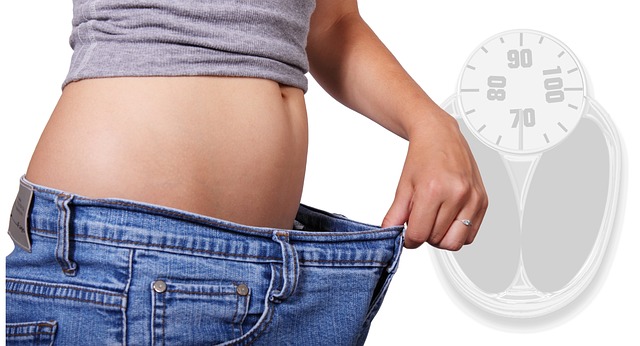Is Coffee Good for Workouts?
Coffee, in its many forms and variations, has for many years held a secure spot as a universally adored beverage. From the alluring, robust scent that fills rooms and the deeply rich flavor that excites palettes, to the comforting warmth of a freshly brewed cup and the stimulating effects that awaken the senses, it’s not hard to see why coffee has carved its place in the hearts of many across the globe.
[ CHECK ALSO OUR OTHER ARTICLE ABOUT COFFEE HEALTH BENEFITS ]
These diverse qualities of coffee extend far beyond its traditional role as a morning wake-me-up or an afternoon pick-me-up. A growing trend amongst fitness enthusiasts and athletes has seen coffee embraced as a pre-workout beverage, believed to significantly enhance physical performance and endurance. The sight of someone sipping a cup of joe just before hitting the gym or heading out for a long run has become increasingly common.

The claims of coffee’s beneficial impact on workouts are compelling. They suggest that coffee might offer an energy boost, enhanced focus, increased endurance, and even improved recovery. However, as with anything concerning health and wellbeing, it is necessary to ensure these claims are supported by reliable scientific evidence.
The popularity of coffee, both as a cherished everyday beverage and a potential workout enhancer, calls for a thorough exploration. It becomes essential to delve deep into the research, understand the physiological effects of coffee and its key component, caffeine, on the human body during exercise. We need to answer the question, ‘Is coffee truly good for workouts?‘ and if so, how can it be consumed effectively and safely for this purpose.”

Coffee Components and Body Effects
A look into coffee’s composition is the first step to understanding its relevance to workouts. The star player is caffeine, a powerful stimulant revered for its energy-boosting properties. Complementing caffeine, coffee is teeming with antioxidants such as chlorogenic acid and melanoidins, compounds known for their health-enhancing properties.
The complex interaction of caffeine with the human body underpins its physiological effects. Caffeine blocks adenosine receptors in the brain, leading to delayed onset of fatigue and increased wakefulness, valuable for those engaging in strenuous physical activities. Concurrently, caffeine’s role in promoting dopamine secretion enhances mood and motivation, vital for maintaining commitment to rigorous exercise regimes. The antioxidants in coffee also contribute to post-workout recovery by combating oxidative stress and inflammation.
Coffee and Physical Performance
The influence of caffeine on physical performance is well-documented in scientific literature. Endurance sports, for instance, are areas where caffeine’s effects are most profound. By promoting fat oxidation, caffeine spares muscle glycogen stores, effectively allowing prolonged exertion during endurance exercises. In addition, caffeine’s role in reducing perceived exertion can result in athletes pushing harder and longer, leading to enhanced performance.
Even strength-based and high-intensity workouts stand to benefit from caffeine consumption. Research suggests that caffeine can contribute to improved muscle strength and power output, critical factors in resistance training and high-intensity interval training.

Mental Stamina and Focus
The mental aspect of workouts, although often overshadowed by the physical, is equally important. Persistence, focus, and resilience often dictate the quality and productivity of a workout. This is another arena where caffeine proves useful. By bolstering alertness and warding off feelings of fatigue, caffeine facilitates sustained focus during workouts. This enhanced mental engagement can lead to more efficient and effective exercise sessions.
Coffee Consumption Drawbacks
Despite these potential benefits, coffee consumption is not without its pitfalls. Caffeine’s diuretic effect can lead to increased fluid loss, potentially resulting in dehydration – a condition that can significantly hamper physical performance. Further, the stimulatory effects of caffeine can cause an elevated heart rate, posing risks for individuals with cardiovascular concerns.
Digestive discomfort is another potential drawback, as coffee, particularly on an empty stomach, can cause gastrointestinal distress. Lastly, the risk of developing caffeine dependency and tolerance cannot be overlooked, with regular consumers finding the performance-enhancing effects of coffee diminish over time.
Scientific Studies Review
Several studies have ventured into the relationship between coffee consumption and exercise performance. Although a majority hint at a positive correlation, it’s crucial to scrutinize these studies’ design and quality. A number of them rely on small sample sizes, and their results might not always generalize to broader populations. Therefore, while current research paints a promising picture, more rigorous, extensive studies are necessary to solidify these claims.
Individual Differences
The impact of coffee is not universally experienced, highlighting the need to consider individual differences. Metabolic rates, caffeine sensitivity, overall health status, and even genetic factors can significantly sway coffee’s effect on a person’s workout performance. Consequently, individual experimentation, ideally under the guidance of a healthcare or fitness professional, is integral to successfully incorporating coffee into one’s workout routine.
Coffee vs. Pre-workout Supplements
Many fitness enthusiasts lean toward pre-workout supplements for their performance-enhancing promises. These products, combining various ingredients like caffeine, amino acids, and creatine, are designed to optimize physical performance. However, they often come at a high cost and could include artificial additives.
In comparison, coffee offers a more natural and affordable option. Ultimately, the choice between coffee and pre-workout supplements should hinge on personal preferences, tolerance levels, and health considerations.
Practical Coffee Consumption Guidelines
For those contemplating adding coffee to their pre-workout regimen, starting small and observing their body’s responses is a sound strategy. A moderate amount of coffee consumed 30-60 minutes before exercise could provide the energy boost many seek. However, an emphasis on moderation is paramount, as excessive caffeine can lead to side effects like restlessness, insomnia, and a racing heart. Monitoring one’s reactions to caffeine is crucial when making dietary changes.

Conclusion
In summation, coffee, with caffeine at its core, shows a promising potential for enhancing workouts, from improved physical performance to better mental focus. However, it’s crucial to consider the potential drawbacks, such as the risk of dehydration and caffeine dependency. Deciding to use coffee as a pre-workout drink should be an individual decision, based on personal experiences and health conditions. Despite the wealth of research and anecdotal evidence, more comprehensive studies are needed to cement coffee’s role in fitness. In essence, whether coffee is good for workouts might be as individual as the choice of coffee beans.
Check also our other articles like: Pros and Cons of drinking Coffee before Workout







